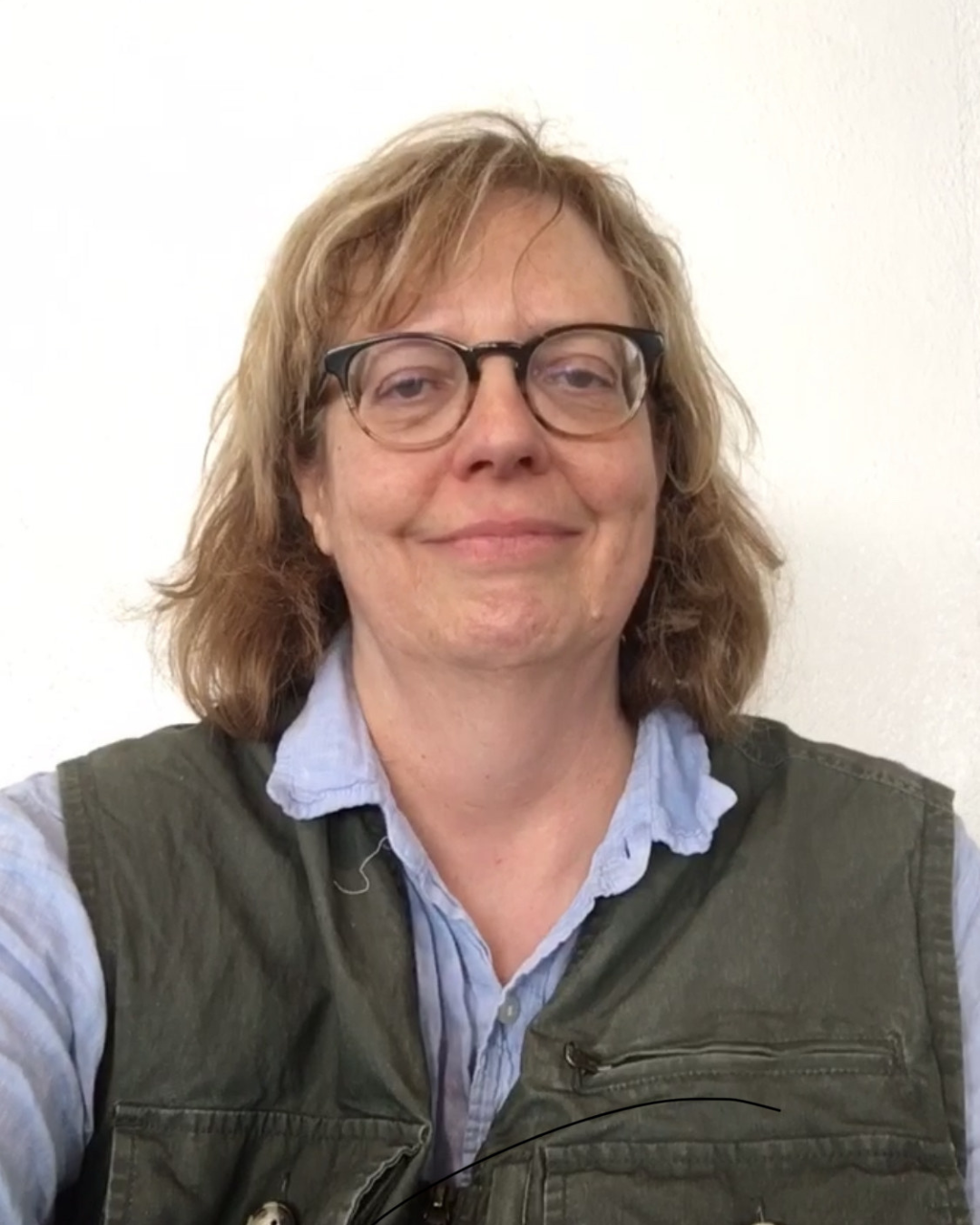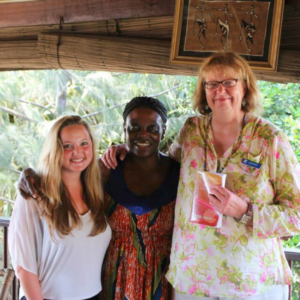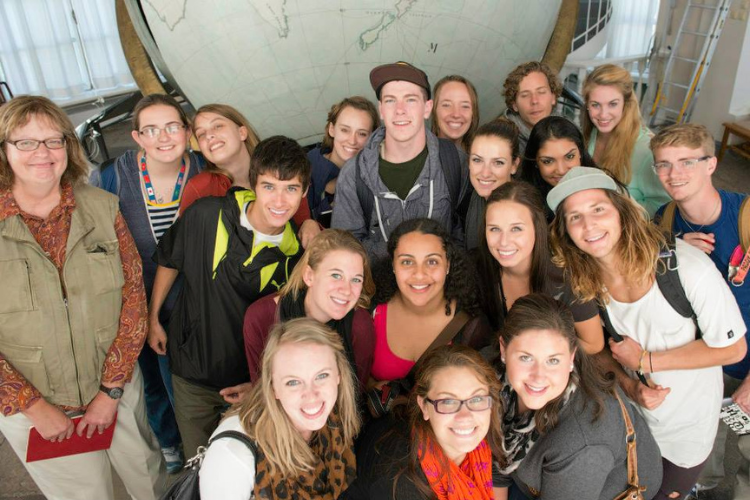Sarah Sloane, professor of writing studies in the Department of English, has retired from Colorado State University after 23 years of teaching, scholarship, and service. Her title changed from “Professor of English” to “Professor Emerita of English” at the end of last year.
Sloane received a Bachelor of Arts in English and Creative Writing from Middlebury College and holds advanced degrees from the University of Massachusetts Amherst (M.F.A.), Carnegie Mellon University (M.A.), and Ohio State University (Ph.D.). She has also studied at Oxford University and University of Edinburgh.
Before teaching at CSU, Sloane taught for nine years at the University of Puget Sound.

Two decades of teaching and scholarship
During her academic career at CSU, Sloane taught a wide range of graduate and undergraduate classes. Her subjects of interest included rhetorics and narratives, the history of writing, science writing, authorship and ownership, computers and writing, writing arguments, theories of writing, literacy and gender, travel writing, creative nonfiction, composition administration, and modern women writers.

Sloane also taught aboard the MV Explorer during the 2013 and 2017 Semester at Sea programs. In 2013, she helmed several courses—including women’s world literature, in which students had the opportunity to meet and visit with Ghanaian novelist Amma Darko. Sloane especially enjoyed the small class sizes of the voyages and the multinational perspective the program provided students and faculty alike.
Over the course of her tenure, Sloane directed the University Writing Center and the University Composition Program. Furthermore, she and colleague Debby Thompson, professor emerita of English, were responsible for starting the M.A. in Creative Nonfiction and contributed to developing the M.F.A. track in Creative Nonfiction.
Sloane’s publishing record is extensive and varied. She has published two books (The I Ching for Writers and Digital Fictions: Storytelling in a Material World) and numerous chapters, articles, essays, and reviews. She is the author of book chapters and journal articles about writing theory, social justice in Guatemala, Wilhelm Reich, 18th-century Scottish rhetoric, and digital storytelling.
Additionally, Sloane has served on the Conference of College Composition and Communication Executive Committee, as a Special Delegate in Rhetoric and Composition to the Modern Language Association, and as a Visiting Scholar at the University of Washington’s Human Interface Technology Laboratory (HITLab).
Student impact
When asked what she’ll miss most about CSU and the English department, Sloane didn’t hesitate to give an answer: “The students. The students are the best part of the job. I’m so proud of the impact I’ve had on them,” she said.
“Like many of us in the Department of English, I’ve gotten to follow the careers of many of my undergraduate and graduate students through their notes, visits, and emails.”
The students. The students are the best part of the job. I’m so proud of the impact I’ve had on them.

Narrowing down a favorite CSU memory proved more challenging. “There are so many,” Sloane said.
One story Sloane recalled occurred early on in her career at CSU, while she was teaching a course in science fiction.
To her surprise, the President’s Office called Sloane and said a painting by science fiction writer and founder of Scientology L. Ron Hubbard had been sent to CSU as a gift. The painting, described by Sloane as a futuristic skyscape of a world far beyond our galaxy, was without a home.
“The administration didn’t know what to do with it, and as the only professor of science fiction on campus they asked if I would like to have it? It was such a peculiar gift, of course I said yes.”
At that time, her students were writing their own science fiction stories. When Sloane told them about the painting, they enjoyed the anecdote so much that she said she would give the work to whoever wrote the best sci-fi story in class.
“The young woman who won the painting was a first-year student in a 200-level class,” Sloane said.
“She went on to take another writing class with me and kept in touch through her time in graduate school and her job as a geologist working across the country. This fall I got an email from her saying she had relocated back to her home state, Wyoming, and hoped we could get together soon. She still has the painting.”
Embarking upon the next chapter
Sloane has left behind a legacy of teaching, leadership, research and creative artistry, and service to the English department.
Department Chair Louann Reid noted her immeasurable impact. “Sarah leaves her distinctive mark on the department. She is a skilled writer and teacher of writers, an inveterate traveler, a masterful raconteur, and endlessly curious. We will miss her.”
Though her career at CSU has come to end, Sloane is looking forward to teaching in other capacities, as well as furthering her scholarship of queer communities in Scotland.
“I’ve been asked to contribute to Lavender Menace, an LGBTQIA+ Archive in Edinburgh that focuses on Scottish books and ephemera post-1970. I’ve also been invited to teach writing workshops there to LGBT elders, writing memoirs together and collecting oral histories.”
Noting a trip to the National Library of Scotland may be in her future as she works on research for a potential book, Sloane also hopes to make good on a long-held promise to herself.
“I’ve always said I would take up studying Ancient Greek when I retire, so that I can read some of the primary texts in rhetoric and philosophy in the original. I think I owe it to myself to do that too,” she said.